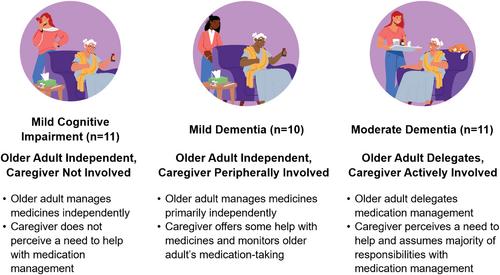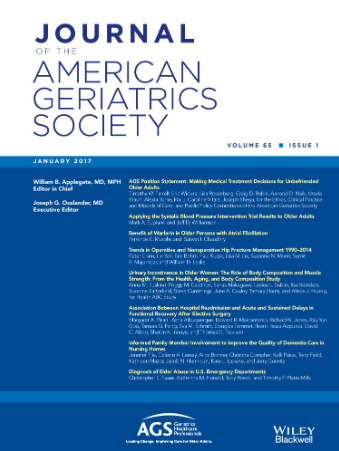Managing medications among individuals with mild cognitive impairment and dementia: Patient-caregiver perspectives
Abstract
Background
With changing cognitive abilities, individuals with mild cognitive impairment (MCI) and dementia face challenges in successfully managing multidrug regimens. We sought to understand how individuals with MCI or dementia and their family caregivers manage multidrug regimens and better understand patient-to-caregiver transitions in medication management responsibilities.
Methods
We conducted qualitative interviews among patient–caregiver dyads. Eligibility included: patients with a diagnosis of MCI, mild or moderate dementia, managing ≥3 chronic conditions, ≥5 prescription medications, who also had a family caregiver ≥18 years old. Semi-structured interview guides, informed by the Medication Self-Management model, ascertained roles and responsibilities for medication management and patient-to-caregiver transitions in medication responsibilities.
Results
We interviewed 32 patient–caregiver dyads. Older adults and caregivers favored older adult autonomy in medication management, and individuals with MCI and mild dementia largely managed their medications independently using multiple strategies (e.g., establishing daily routines, using pillboxes). Among individuals with moderate dementia, caregivers assumed all medication-related responsibilities except when living separately. In those scenarios, caregivers set up organizers and made reminder calls, but did not observe family members taking medications. Patient-to-caregiver transitions in medication responsibilities frequently occurred after caregivers observed older adults making errors with medications. As caregivers sought to assume greater responsibilities with family members' medicines, they faced multiple barriers. Most barriers were dyadic; they affected both the older adult and the caregiver and/or the relationship. Some barriers were specific to caregivers; these included caregivers' competing responsibilities or inaccurate perceptions of dementia, while other barriers were related to the healthcare system.
Conclusions
To ease medication management transitions, balance must be sought between preservation of older adult autonomy and early family caregiver involvement. Clinicians should work to initiate conversations with family caregivers and individuals living with MCI or dementia about transitioning medication responsibilities as memory loss progresses, simplify regimens, and deprescribe, as appropriate.


 求助内容:
求助内容: 应助结果提醒方式:
应助结果提醒方式:


